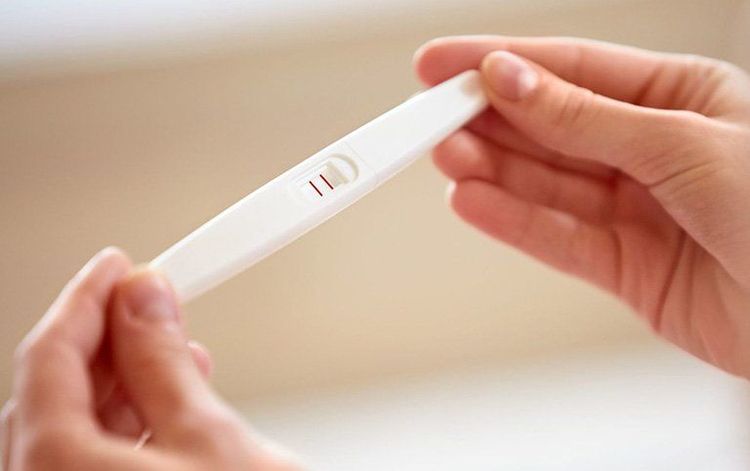Sexual activity, in addition to its potential health benefits, carries certain risks, such as exposure to sexually transmitted infections (STIs) and unintended pregnancies. However, these risks can be effectively mitigated through proactive planning and the implementation of comprehensive preventive measures
1. Sexual activity and its physical effects
Sexual activity exerts physiological effects throughout the body due to increased blood circulation, elevated heart rate, and the release of hormones such as endorphins. During the initial sexual intercourse, when the hymen remains intact, individuals may experience a sensation of pressure, mild pain, and possibly light bleeding as the hymen is stretched or torn.
During sexual activity, your heart rate and breathing will increase rapidly and you may feel tired because of the physical activity. The excitement of preparing for sexual activity can also cause your neck and breathing to increase. Therefore, it is normal for sexual activity to make you feel tired, but orgasm releases certain endorphins that can have a sedative effect.
During sexual activity, the body may experience phenomena such as muscle tension and even cramps in some parts such as the hands, feet, hips and calves. Drinking enough water before sex can help you reduce this risk. However, pain is sometimes a manifestation of rough sex positions or not using lubricant.
In addition, during sex, the body will secrete fluids such as semen to lubricate the vagina and if having anal sex, feces may appear during sex.

2. Sexual activity can impact emotional well-being
The emotional responses experienced during sexual activity are influenced by a variety of factors, including levels of psychological stress, hydration status, education, cultural background, religious teachings regarding sexual behavior, the degree of sexual arousal, emotional attachment to your partner, the type of intimacy sought through the interaction, and the sense of safety and trust with the partner. These factors can all play a significant role in modulating the emotional and physiological experience of sexual activity, as well as influencing neurotransmitter release, hormonal fluctuations, and overall psychological state.
You may feel deeply connected, comfortable, satisfied, or excited if you feel safe and respected by your partner. On the other hand, you might experience feelings of shame, guilt, or distress if you are inadvertently under pressure from family or familiar individual.
3. Sexual activity can alter genital odor
After vaginal intercourse, changes in genital odor may occur due to the natural acidity of the vagina and the alteration of pH by semen. This usually lasts 1–2 days. If the odor persists for more than 72 hours, it could indicate an infection, such as bacterial vaginosis or vulvovaginal candidiasis, and you should consult a gynecologist. Muscle soreness, especially in the gluteus, tendons, and upper limbs, may also result from physical activity during intercourse.
4. Sexual activity can cause urinary tract infections (UTIs)
Women are more prone to urinary tract infections (UTIs) than men because they have a shorter urethra. To reduce the risk of a UTI, it is recommended to urinate after sexual activity, as urination helps flush out bacteria from the urethra. Symptoms of a UTI include a burning sensation during urination, a stinging or painful feeling when urinating, blood in the urine, and kidney pain.
5. Sexual activity can lead to unintended pregnancy
Pregnancy is one of the risks associated with sexual activity if contraception is not used or is used improperly. If you are taking birth control pills, make sure not to miss any doses, and if using other forms of protection, such as condoms, choose high-quality ones that are the correct size.

6. Sexual activity can lead to the transmission of sexually transmitted infections (STIs)
STIs do not occur spontaneously; if your partner is infected, the pathogen can be transmitted to your genital, oral, or anal mucosa, depending on the type of sexual activity engaged in.
Most individuals with an STI are asymptomatic, meaning they may not be aware of their infection. As a result, STIs can still be transmitted even in the absence of visible symptoms, making it challenging to determine if you or your partner is infected.
Oral, anal intercourse and vaginal can reduce the risk of transmission, but some STIs, such as herpes simplex virus (HSV) or human papillomavirus (HPV), can spread through skin-to-skin contact. The only definitive way to determine if you have an STI is through laboratory testing. If your partner has tested positive for an STI or is unaware of their STI status, it is recommended to get tested approximately 2 weeks after possible exposure.
7. Other Benefits and Risks of Sex
Sex can bring many emotional experiences. Some of them include:
- A sense of satisfaction
- A sense of joy
- A sense of being appreciated
- A sense of power
- A sense of vulnerability
- A sense of shame or embarrassment
- A sense of guilt
To minimize the risks that sex can bring, you and your partner can take the following precautions:
- Use condoms
- Use contraception or prevention medication
- Only have sex with a partner you feel safe with
Sexual activities are also beneficial for the pelvic floor. Orgasm causes the pelvic floor muscles to contract, which can help keep them healthy as you age. Sex also brings blood flow to the genital area, nourishing the genital tissues. Furthermore, the more you engage in voluntary sexual activities, the more your body craves it. Therefore, not engaging in sexual activity can lead to a decrease in sexual desire.

8. What to Do to Determine if What You’re Experiencing is a Cause for Concern?
If you experience any of the following physical changes after sexual activity, it is advisable to consult a healthcare provider:
- Changes in the genital or anal region, or abnormal bleeding (such as intermenstrual bleeding or spotting) accompanied by other symptoms like pain, tenderness, or discomfort persisting for more than 3 days.
- Suspected pregnancy.
- Your partner has a sexually transmitted infection (STI), or you are unaware of their STI status.
All sexual activities carry both positive and risk factors. However, you can manage these risks effectively to prevent long-term health consequences.
To arrange an appointment, please call HOTLINE or make your reservation directly HERE. You may also download the MyVinmec app to schedule appointments faster and manage your reservations more conveniently.
Reference source: healthline.com












